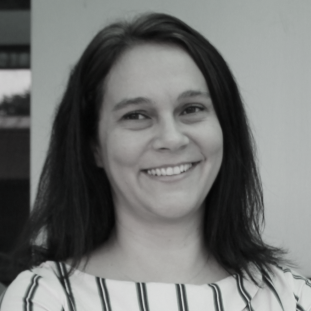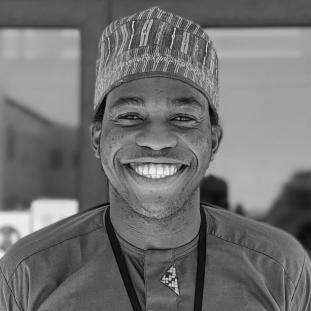Background and rationale
As an independent global health think tank within the UN system with a mandate to advance the perspectives and needs of states and populations in the Global South, UNU-IIGH has a unique and important contribution to make towards facilitating cooperation between different stakeholders, including governments, research institutions and the private sector to promote better digital health governance (DHG) globally.
Digital transformation and innovation are rapidly changing health systems. Digital technologies, including artificial intelligence (AI), have the promise to revolutionise access to healthcare, enhance diagnosis, strengthen health workforce and patient engagement, improve health outcomes and lead to the realisation of universal health coverage while reducing healthcare costs. However, these opportunities need to be balanced with potential challenges and risks, making strong digital health governance frameworks imperative.
For example, the impact of digital technologies on the lives of women and girls, particularly concerning sexual and reproductive health and rights (SRHR), presents specific opportunities and challenges. With the help of technology and digital tools, access to reliable information and services related to contraception, abortion, sexually transmitted infection prevention and counselling, and menstrual health can be significantly improved. However, the intersection of AI and SRHR, although not entirely understood, raises additional implications, including issues related to safeguarding bodily autonomy, navigating gendered digital divides, and regulating risks around the use of sensitive data. Additionally, given the prevalence of technology-facilitated gender-based violence and gender biases in algorithms and the datasets used to train them, we must place women’s and girls’ rights at the centre of these debates.
In healthcare, biased AI algorithms may also result in a greater percentage of errors in diagnosis or ineffective treatment for groups less represented in data, including racial and ethnic minorities. Accordingly, DHG should also promote diversity in technology design and development. Therefore, it is crucial to have inclusive digital teams with individuals from diverse racial and ethnic backgrounds involved in designing, developing, and testing digital health technologies. This contributes to addressing the unique needs of different populations and mitigating the risk of digital solutions perpetuating racial and ethnic disparities.
DHG involves a multi-dimensional approach to regulating, coordinating, and ensuring the responsible use of digital technologies in healthcare. This approach involves considering the laws, policies, and guidelines for ethical data collection and meaningful consent, product validation, health data privacy and security, and algorithmic transparency and accountability as well as the rights, norms, responsibilities, and risks of digital health technologies. The focus is on enhancing equity in healthcare.
Digital health technologies require rigorous oversight as their unregulated use presents several risks, including personal health data being easily accessed, inappropriate diagnosis and treatments causing delayed health seeking, the spread of health misinformation diminishing the impact of public health campaigns and the digital/non-digital divide where patient-centred services are available for those who can pay and digital services are regarded as cheaper large-scale interventions to expand universal health coverage to disadvantaged populations. Poor DHG can exacerbate inequalities in healthcare access and health outcomes due to gender, literacy, and income-related digital gaps, as well as the rural-urban divide, migrant status, and disability amongst other intersecting determinants.
DHG requires enabling conditions to support its implementation, including standardisation and interoperability of health information systems (HIS) to promote integrated healthcare delivery, digital health collaborations between governments, private companies and non-profits for the development of global digital goods, a skilled health workforce capable of adapting to the technology integration in healthcare and, international cooperation that facilitates knowledge sharing, avoids the duplication of efforts, and ensures harmonisation of standards. Accordingly, digital health initiatives need to be regulated by strong governance structures aligned with national health policies and international standards. UNU-IIGH has a unique and important contribution to make towards facilitating cooperation between different stakeholders, including governments, research institutions and the private sector to promote better digital health governance globally.
Aim
The overarching aim of this Work Package is to address the colonial legacies and power asymmetries that negatively impact robust digital health governance, identify ways to strengthen health data governance with a particular focus on SRHR and promote diversity in technology design and development.
The Institute will work in partnership with other UN agencies and academic institutions, UNU-IIGH networks experts, practitioners, policy-makers and academics to serve as a platform for critical thinking, exchange of knowledge and tools, policy influence, and consensus building on good data governance practices for better health, especially for communities left behind due to digital gaps.
The following objectives will contribute to achieving the aim of the Work Package:
• Generating recommendations and building consensus on digital health governance through the convening of policy dialogues with member states, UN agencies and other key stakeholders.
• Undertaking translation and dissemination of global guidance and recommendations in digital health governance to make them relevant for country-level decision-makers.
• Supporting the implementation of global guidance through expert briefings, advice and training.
• Developing analytical tools and frameworks to inform the design and evaluation of digital health interventions.
• Reviewing the evidence and generating new knowledge in approaches to addressing gender and intersectional inequalities of health impacts of digital health interventions.
• Strengthening capacity for local decision-making through South-South learning and fostering engagement between academics, professional associations, researchers, civil society and policymakers.
• Developing knowledge products to inform global policy and best practice.
Projects
Project
Evidence, Policy and Interventions for Covid-19 Tracker
Project
Local Capacity Building
Project




